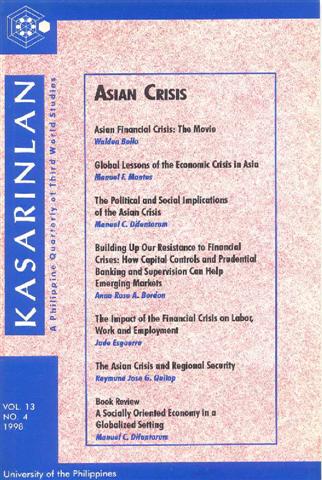Building Up Our Resistance to Financial Crises: How Capital Controls and Prudential Banking and Supervision Can Help Emerging Markets
Abstract
The Asian crisis, currently on global tour, has given everyone a reason to reconsider their positions on capital control and prudential banking and supervision. Once an incentive for attracting foreign investments, hassle-free capital inflows and outflows and weak banking supervision and regulation have proven to be a mistake. Capital flows, prone to reversals, distort the prices of foreign currency and wreak havoc on financial and non-financial institutions strapped with dollar-denominated loans. Banking institutions, which on a daily basis deal with the risks of liquidity and unstable exchange rates, can hold the economy hostage. It is vital that they undergo strict supervision and regulation to determine if they are capable of handling the risks they are taking. However, the existing bias leans towards accepting capital inflows without control and preventing a crisis by paying closer attention to financial intermediaries. The author insists that they go hand in hand. To avoid another global crisis, both prudential supervision and regulation and capital controls, the extent of which is determined by a country's culture, institutions and bureaucracy, and development model, must be taken seriously. Asia is learning this the hard way.
Published
2007-10-18
Section
Features
By submitting a manuscript, the authors agree that the exclusive rights to reproduce and distribute the article have been given to the Third World Studies Center.



